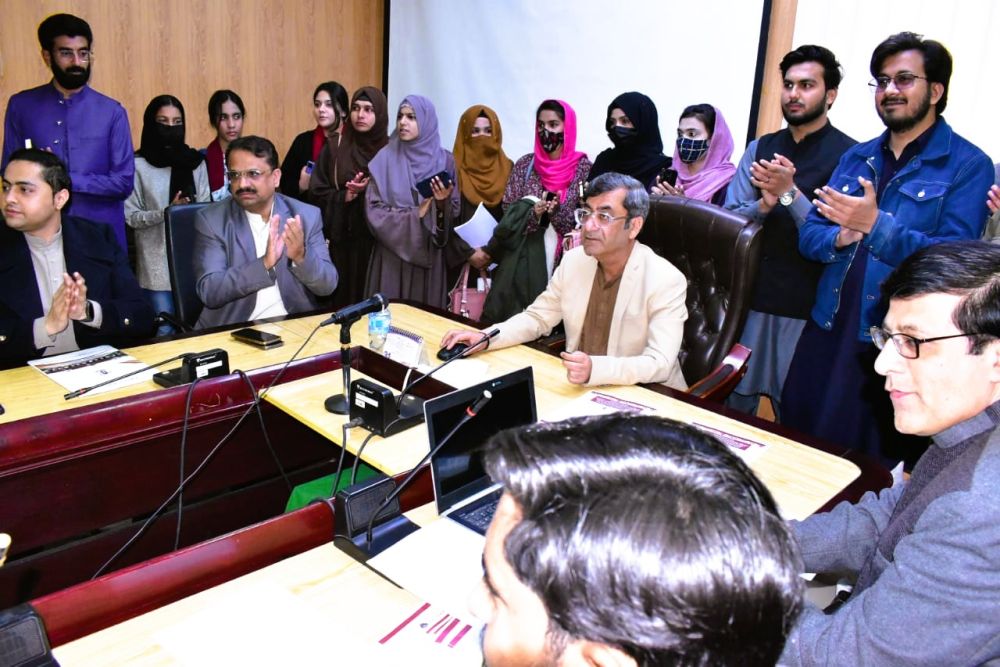49/25 Prof. Dr. Robina Farooq Wins "Women of Impact 2025" Award
Posted 10 months ago
In recognition of intellectual excellence and leadership, Prof. Dr. Robina Farooq (T.I.) has been honored with the prestigious Women of Impact 2025 award by the Punjab Women Development Department, Government of Punjab. This accolade, announced on International Women's Day, celebrates her groundbreaking contributions to research, innovation, and academic governance highlighting women's transformative power in science and education.
Prof. Dr. Farooq's journey is emblematic of resilience, brilliance, and unyielding dedication. As a female scientist, she has made remarkable strides in research, holding three patents and authoring 107 publications in esteemed scientific journals. However, her impact extends far beyond the laboratory. Her visionary leadership transformed Government College Women University Faisalabad (GCWUF) from a college into a full-fledged university. Under her stewardship, GCWUF gained financial sustainability and secured an enviable position in global academic rankings securing the top spot among all women's universities as per QS South Asia and ranking third in QS Asia.
This honor by the Punjab Government truly reflects her status as an accomplished scholar and academic administrator. Her influence is not confined to institutional transformation; it radiates through policy-making, research mentorship, and the broader academic ecosystem. Prof. Dr. Muhammad Mukhtar, Editor-in-Chief of HunarNama and a distinguished academic leader, lauded her invaluable contributions, particularly her role as a Senate Member at the National Skills University Islamabad. According to him, her intellectual acumen and governance expertise have earned widespread admiration in Pakistan and internationally.
In an era where women's contributions to STEM and higher education are gaining well-deserved recognition, Prof. Dr. Farooq's achievements set a precedent. Her journey is a personal triumph and an inspiration for aspiring women scholars, reinforcing the imperative of inclusive and meritocratic academic leadership. Her Women of Impact 2025 award is a significant milestone in this journey, highlighting the increasing recognition of women's roles in STEM.
As we celebrate this remarkable achievement, it is crucial to acknowledge that honors such as the Women of Impact 2025 award are not just commendations but also calls to action urging institutions, policymakers, and society at large to continue fostering environments where women in science and academia can thrive and lead with distinction.





